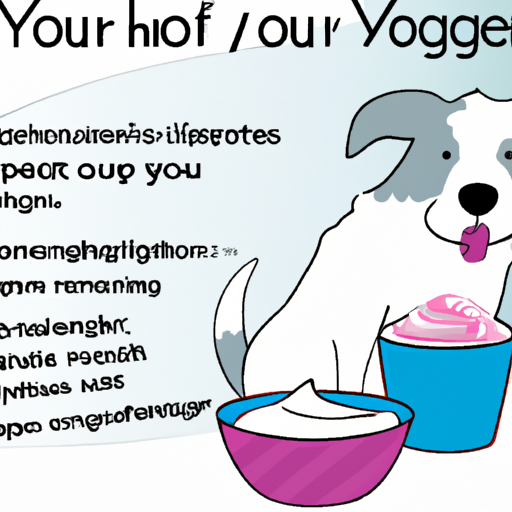You’ve likely heard that some human foods can be harmful to dogs. But, have you ever wondered about yogurt? Is it safe for dogs? The short answer is yes, but there are some important aspects to consider.
1. Why Consider Yogurt for Dogs?
Yogurt can be a great source of protein, calcium, and probiotics for dogs. These nutrients can:
- Boost their immune system
- Improve digestion
- Encourage bone health
However, not all yogurts are created equal. Some can be harmful or less beneficial due to added sugars, artificial sweeteners, or flavors.
2. Choosing the Right Yogurt
When choosing yogurt for your furry friend, look for:
- Plain yogurt: Avoid flavored yogurts as they often contain added sugar or artificial sweeteners.
- Low or non-fat yogurt: Dogs don’t need the extra fat found in full-fat yogurt.
- No artificial sweeteners: Particularly, Xylitol, a common sweetener, can be extremely toxic to dogs.
| Good Choice | Bad Choice |
|---|---|
| Plain Yogurt | Flavored Yogurt |
| Non-fat Yogurt | Full-fat Yogurt |
| No Xylitol | Contains Xylitol |
3. How Much Yogurt to Feed Your Dog
The amount of yogurt your dog can safely consume depends on their size. A general guideline is:
- Small dogs: 1-2 tablespoons
- Medium dogs: 2-3 tablespoons
- Large dogs: 3-5 tablespoons
Remember, yogurt should be a supplement to their regular diet, not a replacement for their meals.
4. Potential Side Effects
While generally safe, some dogs might experience:
- Upset stomach
- Diarrhea
- Gas or bloating
If these symptoms occur, it’s best to stop feeding yogurt and consult with your vet.
5. Yogurt Alternatives
If yogurt doesn’t sit well with your dog, there are other probiotic-rich foods to consider like:
- Kefir
- Fermented vegetables
- Probiotic supplements designed for dogs
FAQs
Q: Can puppies eat yogurt?
A: Yes, in small amounts. Always monitor for any adverse reactions.
Q: What are the signs that my dog can’t tolerate yogurt?
A: Symptoms could include vomiting, diarrhea, or gas.
Q: Can I feed my dog yogurt every day?
A: It’s best to use yogurt as a treat or supplement, not a daily meal replacement.
In conclusion, while yogurt can be a beneficial addition to your dog’s diet, it’s important to choose the right type and monitor your dog for any negative reactions. As always, when in doubt, consult with your vet.



